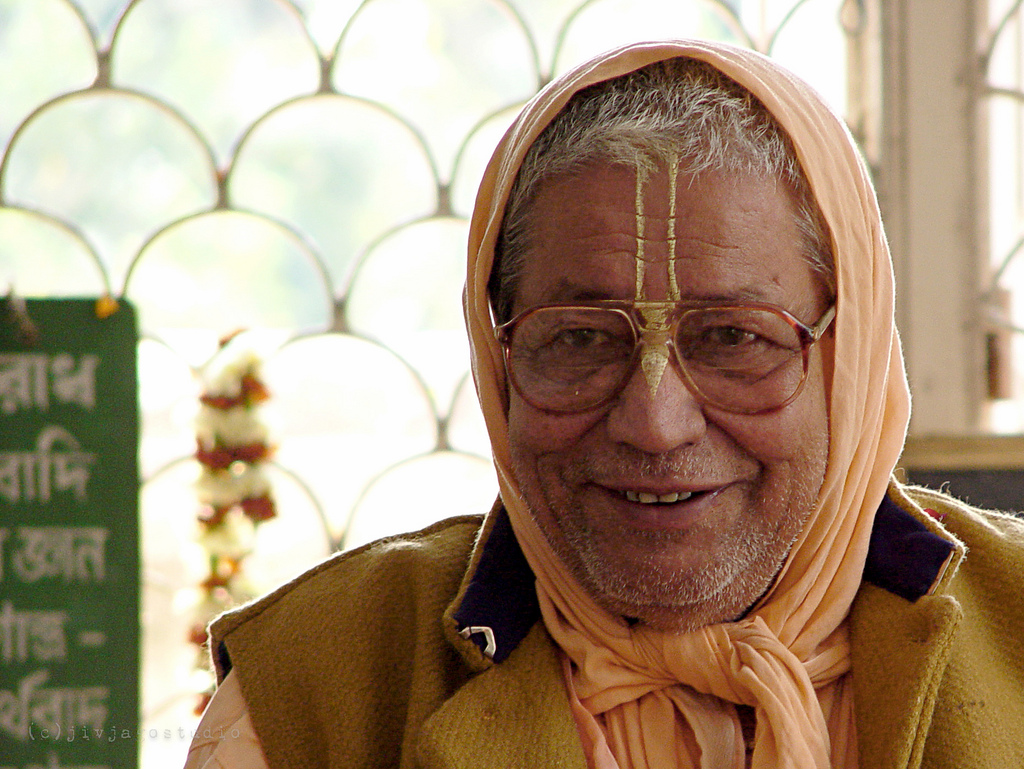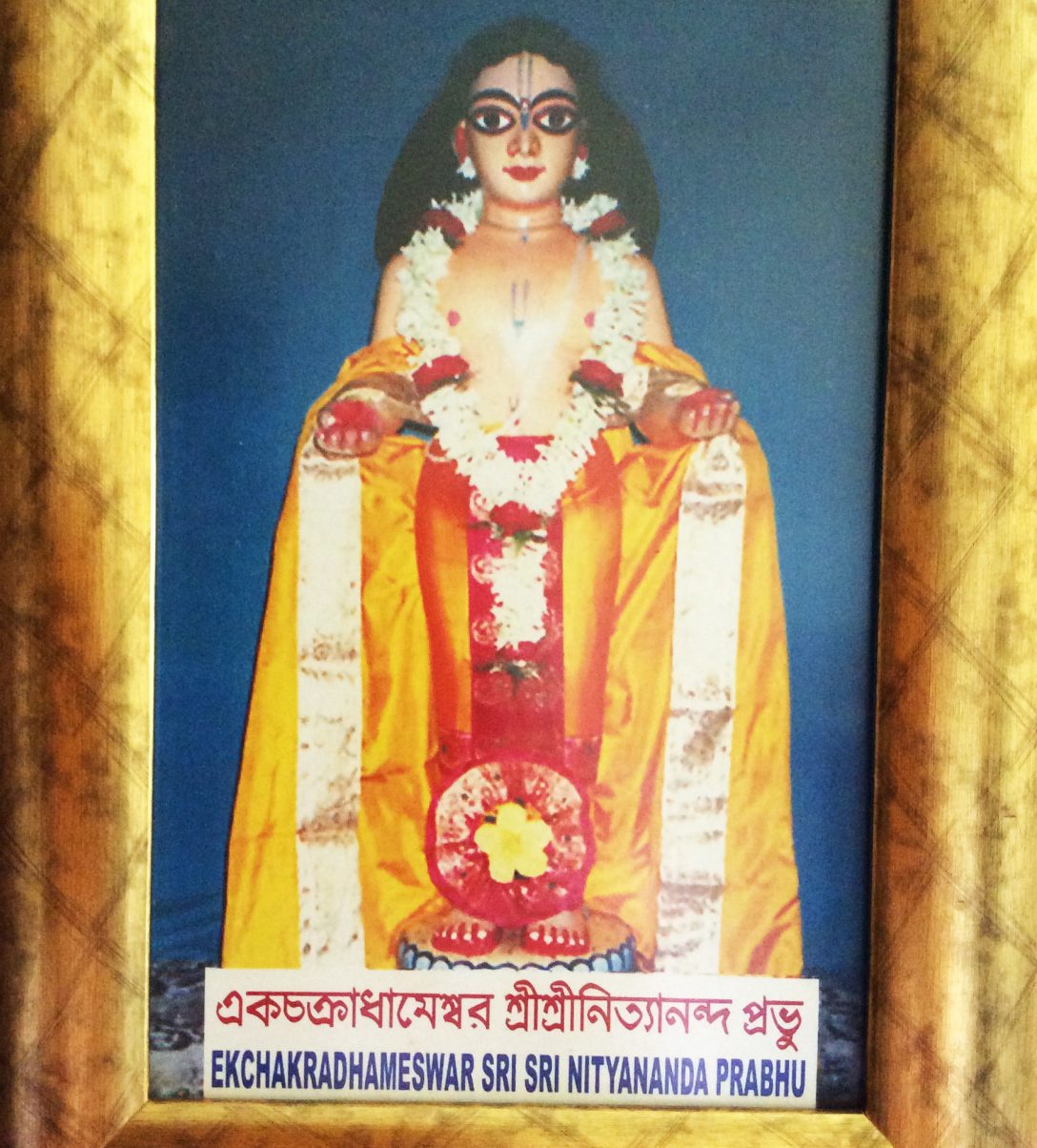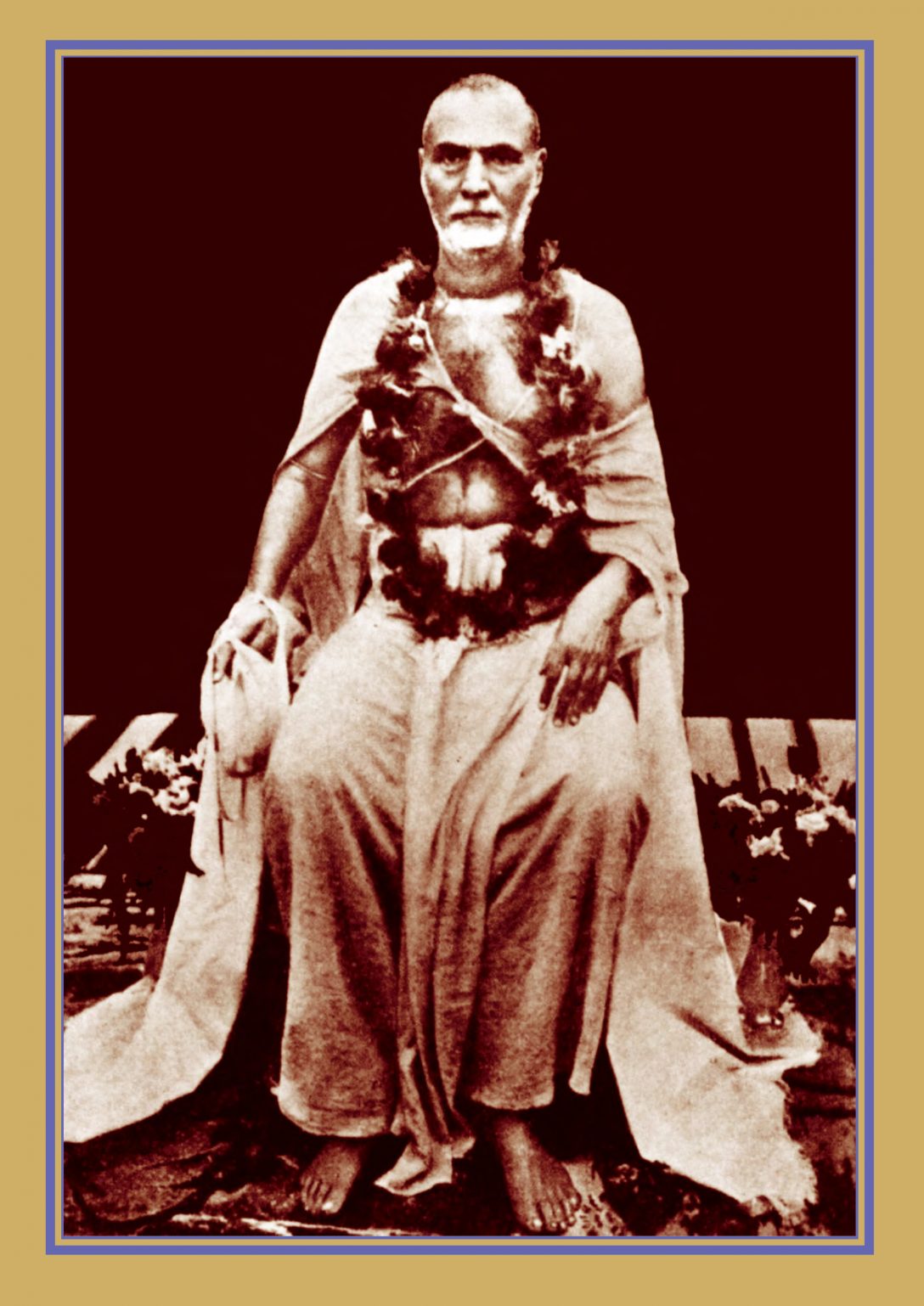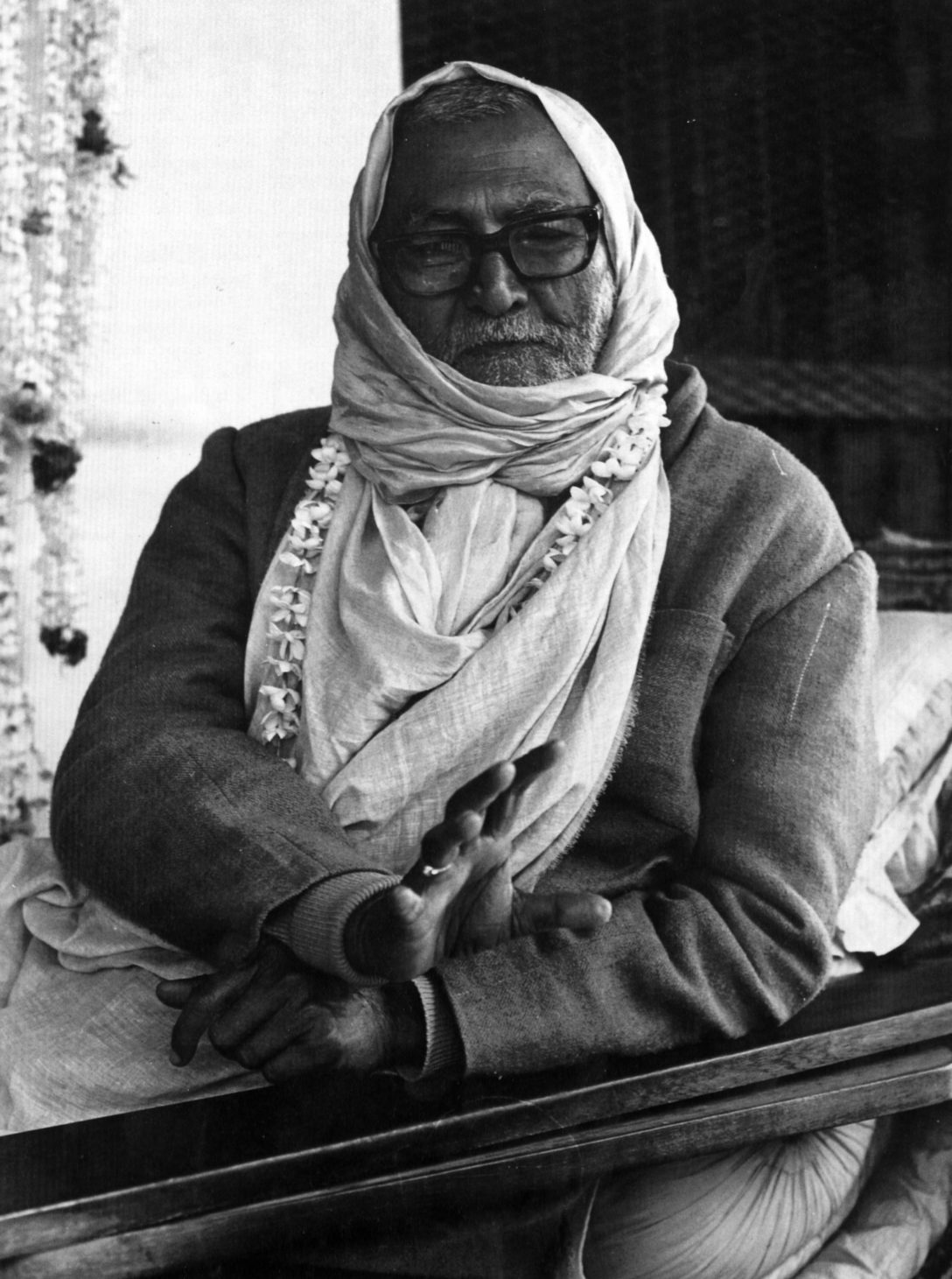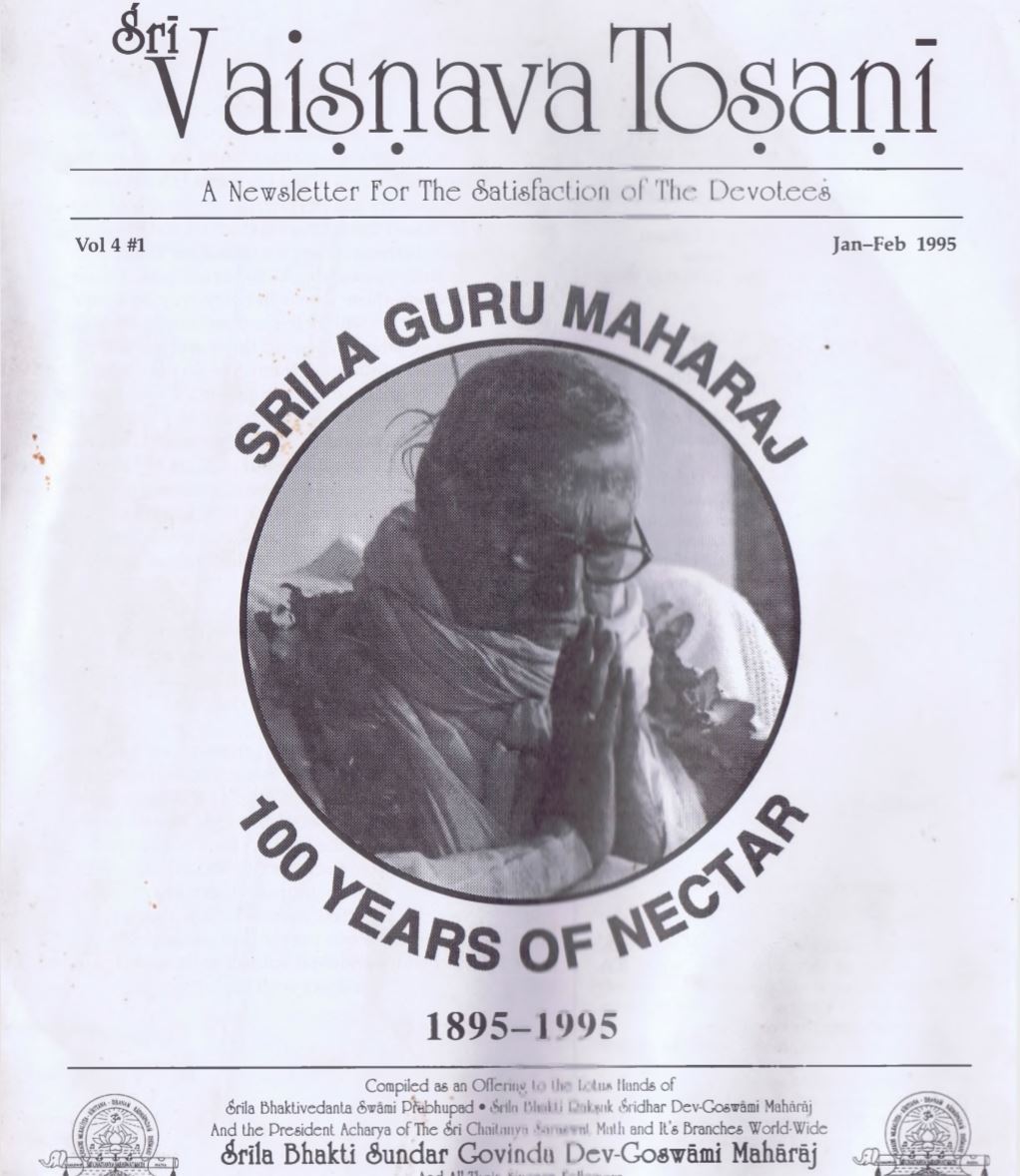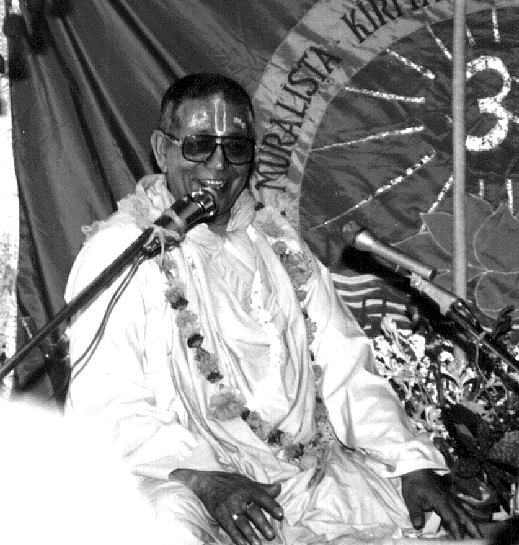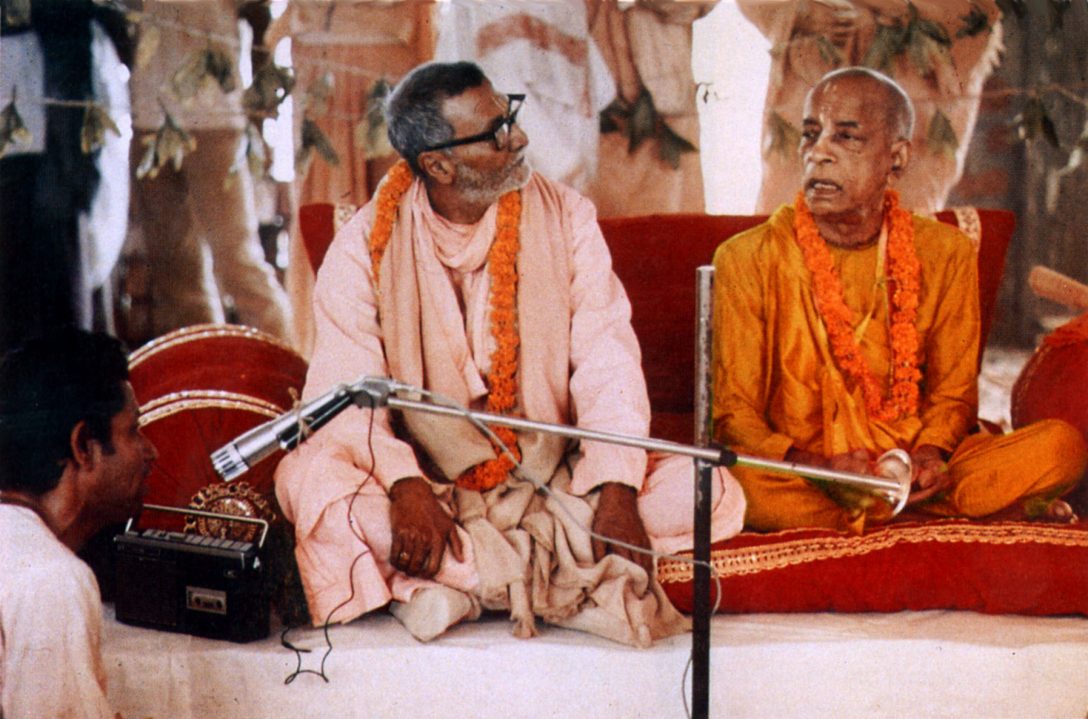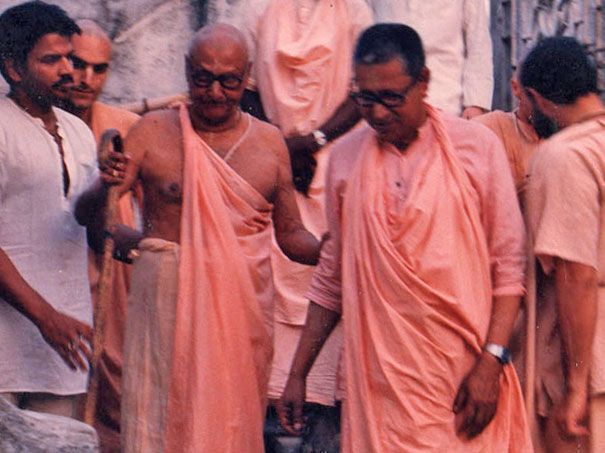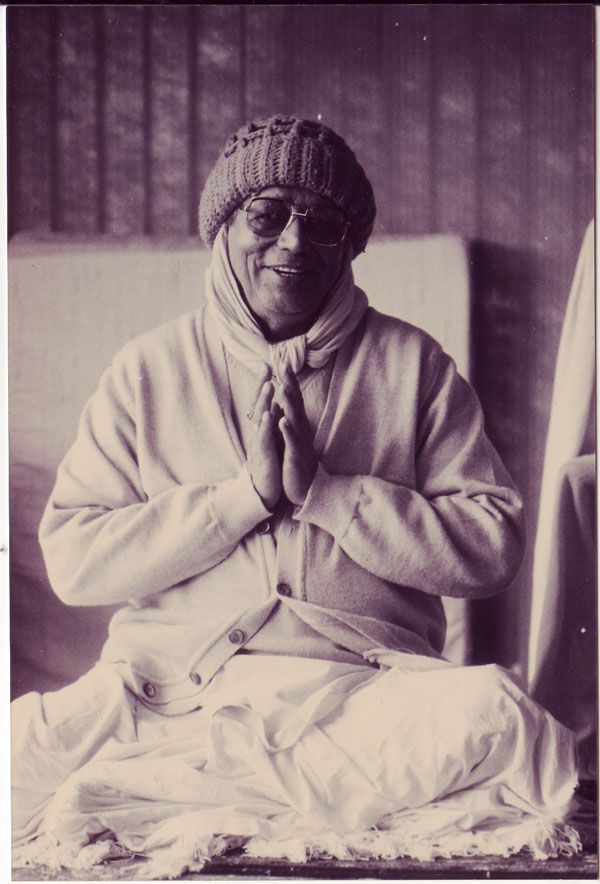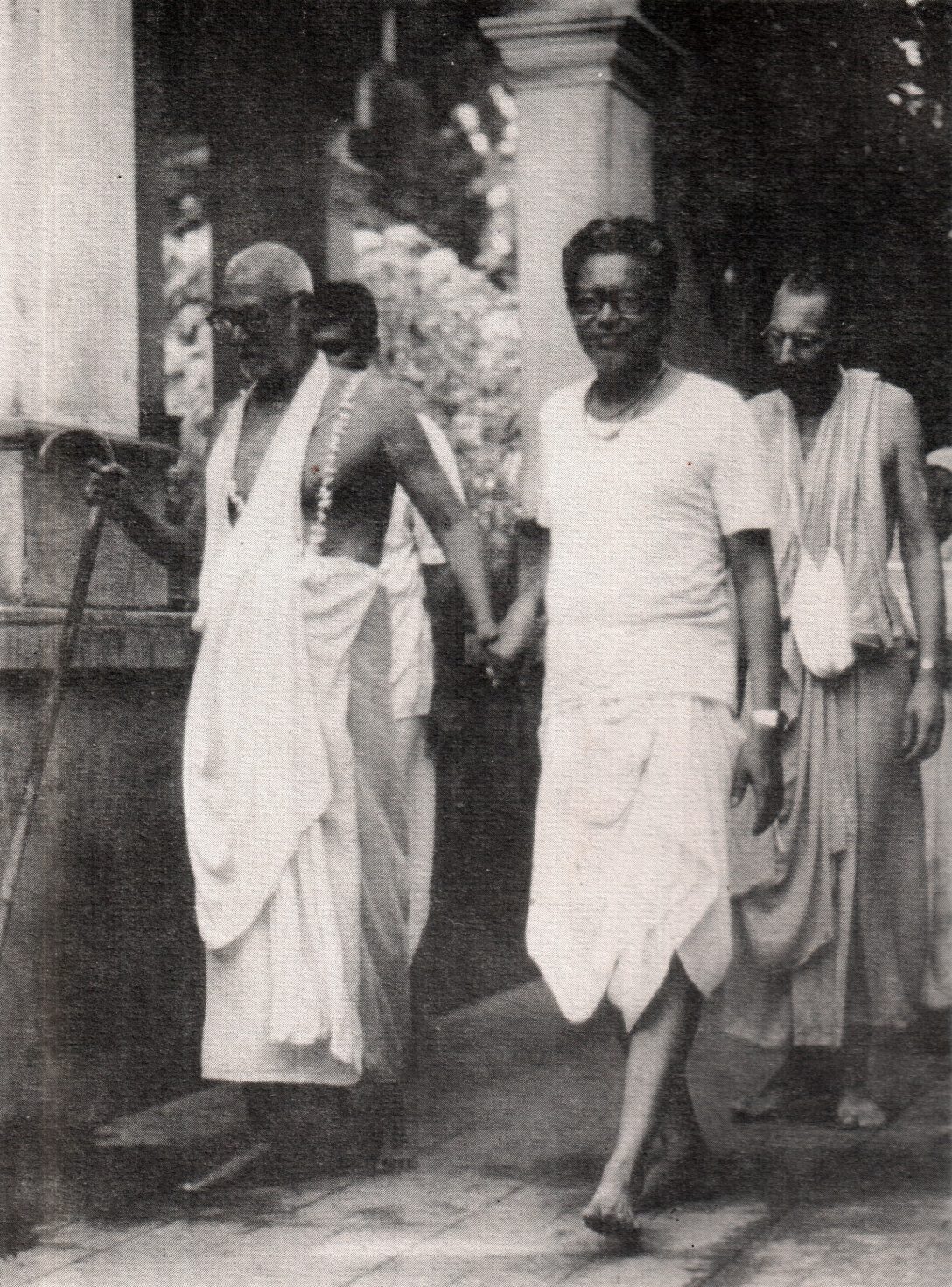A complete transcript and audio file of this talk can be found here
Why do we chant the Hare Kṛṣṇa mahāmantra? We cannot chant, but if I say you cannot chant, you will be hopeless. If you see one śloka then you will understand what you can do and what you cannot do. This is the vital and main śloka about Harinām-saṅkīrtan:
ataḥ śrī-kṛṣṇa-nāmādi na bhaved grāhyam indriyaiḥ
sevonmukhe hi jihvādau svayam eva sphuraty adaḥ
(Śrī Bhakti-rasāmṛta-sindhu: Pūva-vibhāga, 2.234)
[“Although Kṛṣṇa’s Name, Form, Qualities, and Pastimes cannot be grasped by the material senses, through the spirit of dedication they manifest themselves on the tongue and to the other senses.”]
You cannot chant, because your tongue, your lips, and your body is mundane. Nāmādi means Nāma, Rūpa, Gūṇa, Līlā—Śrī Kṛṣṇa’s Name, Form, Qualities, and Pastimes: They are all transcendental, and your tongue is mundane. Nām nāmī abheda, Kṛṣṇa-nām and Kṛṣṇa are nondifferent: Kṛṣṇa is transcendental and Kṛṣṇa-nām is transcendental. This śloka mentions, na bhaved grāhyam indriyaiḥ: indriyaiḥ means senses. Pañcha indriyaiḥ are the five senses: eyes, ears, nose, tongue, and skin. Through these five senses you cannot contact the Name. Then how will you chant the Hare Kṛṣṇa mahāmantra, can you tell me? You are chanting, ‘Hare Kṛṣṇa Hare Kṛṣṇa Kṛṣṇa Kṛṣṇa Hare Hare‘ through your tongue, and your tongue is mundane, but Kṛṣṇa is transcendental and Harinām is nondifferent from Kṛṣṇa. Na bhaved grāhyam indriyaiḥ: and the scriptures say that you cannot chant, because you have no transcendental tongue. You can immediately understand through this śloka that you cannot chant.
Then what will you do? Will you stop chanting? What is the solution? Sevonmukhe hi jihvādau Svayam eva sphuraty adaḥ: you do sevā, and chanting Hare Kṛṣṇa is also one kind of sevā, because that order was given by your Guru. If you do sevā of Hari-nām in this way, then Hari-nām will appear in your heart. Then, as much as possible, you must try to chant. This is the main thing.
prabhu kahena, —’kṛṣṇa-sevā’, ‘vaiṣṇava-sevana’
‘nirantara kara kṛṣṇa-nāma-saṅkīrtana
(Śrī Chaitanya-charitāmṛta: Madhya-līlā, 15.104)
Mahāprabhu said, “Service to the Vaiṣṇava, service to Guru, can give you that transcendental form, and through that you can chant the Hare Kṛṣṇa mahāmantra.” Then, it is first necessary to give your service to Guru–Vaiṣṇava, and through that you will get everything. Your form will become transcendental.
We also see in the scriptures, in Chaitanya-charitāmṛta,
dīkṣā-kāle bhakta kare ātma-samarpaṇa
sei-kāle kṛṣṇa tāre kare ātma-sama
sei deha kare tāra chid-ānanda-maya
aprākṛta-dehe tā̐ṅra charaṇa bhajaya
(Śrī Chaitanya-charitāmṛta: Antya-līlā, 4.192-193)
[“At the time of initiation, when a devotee fully surrenders unto the service of the Lord, Kṛṣṇa accepts them to be as good as Himself. “When the devotee’s body is thus transformed into spiritual existence, the devotee, in that transcendental body, renders service to the lotus feet of the Lord.”]
Then, nobody has received initiation from their Guru: the meaning can come this way. Dīkṣā-kāle bhakta kare ātma-samarpaṇa: when you take initiation from your Gurudev you surrender, ātma-samarpaṇa, and immediately Kṛṣṇa in the form of your Guru takes you and makes your body transcendental, and through that transcendental body you can worship Kṛṣṇa. This is the meaning.
Where is that consciousness? Everything depends upon the mood of service. You can chant Hare Kṛṣṇa, but service is essential for Guru–Vaiṣṇava and Harinām, and service to Guru–Vaiṣṇava is more essential and more effective. Where is the proof for that?
In the scriptures we can see that Kṛṣṇa Himself said,
ye me bhakta-janāḥ pārtha na me bhaktāś cha te janāḥ
mad-bhaktānāṁ cha ye bhaktās te me bhaktatamā matāḥ
(Ādi-purāṇa)
“Who is My devotee may not be My devotee, but who is My devotee’s devotee must be My devotee. They are My devotee, I have no doubt. Ye Me bhakta-janāḥ Pārtha na Me bhaktāś cha te janāḥ: who is My devotee is not really My devotee, but who is My devotee’s devotee, they are My devotee, of that I am two hundred percent sure.”
Why is Kṛṣṇa saying that? Kṛṣṇa wants to satisfy His devotee. That is, the devotee is twenty-four hours a day trying to give satisfaction to Kṛṣṇa through their service. That is the nature of the devotee, and Kṛṣṇa naturally wants to give return to them. The rules in the mundane and transcendental world are the same: to every action there is an equal and opposite reaction. When Kṛṣṇa will take, Kṛṣṇa must give return; Kṛṣṇa will not digest that. But how will Kṛṣṇa give return to His devotee? The devotee is engaged twenty-four hours for the service of Kṛṣṇa Himself, and so Kṛṣṇa does not get a chance to give return to His devotee. Automatically Kṛṣṇa is feeling indebted to His devotee, and so He is in a hopeless position, “They are giving so much, they are giving all to Me, and I cannot give anything in return to them.” And what He is trying to give in return, that is coming in a double way return to Kṛṣṇa. So, who is serving the devotee of Kṛṣṇa gets the chance to serve Kṛṣṇa in that way, and Kṛṣṇa gives much encouragement to the devotee’s devotee, “Oh, what I cannot do, you can do that! Then really you are doing My job. What I want to do, you are doing that. Then I am your slave.”
Na pāraye ‘haṁ niravadya-saṁyujāṁ, this śloka is in Śrīmad Bhāgavat (10.32.22), and if you discuss it, then you can understand this immediately: here Kṛṣṇa Himself says, “I cannot repay My debt to My devotee. But My devotee’s devotee is always serving My devotee. Then service to Harinām, service to the devotee’s devotee, is very essential, and Prabhupād Saraswatī Ṭhākur organised that in a very broad way. Saraswatī Ṭhākur gave much attention for the service to Vaiṣṇava, for the service to Guru.
Etat sarvaṁ gurau bhaktyā puruṣo hy añjasā jayet (“Everything can be automatically done if one engages in the service of the spiritual master with faith and devotion.). This is in Śrīmad Bhāgavat, and also:
tasmād guruṁ prapadyeta jijñāsuḥ śreyah uttamam
śābde pare cha niṣṇātaṁ brahmaṇy upaśamāśrayam
(Śrīmad Bhāgavatam: 11.3.21)
[“Therefore (because there is no lasting fulfilment in the material world), those who are in search of the highest good should surrender to a Guru who is adept in Sabda-brahma (revelations of the Divine, the scriptures) and Parabrahma (direct experience of the Divinity), and who is an abode of tranquility (unaffected by anger, greed, etc.).”]
tad-vijñānārthaṁ sa gurum evābhigachchhet
samit-pāniḥ śrotriyaṁ brahma-niṣṭham
(Muṇḍaka-upaniṣad: 1.2.12)
[“To understand these things properly, one must humbly approach, with firewood in hand, a spiritual master who is learned in the Vedas and firmly devoted to the Absolute Truth.”]
Through that sevā we can chant the Hare Kṛṣṇa mahāmantra. There is no other way.
We cannot stop to chant, however: that is also one kind of sevā. You can do sevā through your hand and through your mind, but you can chant Hare Kṛṣṇa everywhere and all the time. Also, if you do not follow some minimum rules and regulations, then you will forget the Hare Kṛṣṇa mahāmantra, and the tulasī beads will fast every day. You will try to make some excuse, “Oho, I cannot chant today because I have so much sevā!” For that reason Guru Mahārāj said, “You can chant a minimum of four rounds.”
Srila B.S. Govinda Dev-Goswami Maharaj, speaking in Miami, USA, on 16 July 1992 during His Divine Grace’s first world tour.
~~~~~~~~~~~
This discussion is in response to the following question:
Devotee: I would like to hear something from your lotus lips on a controversial topic: it is said that Śrīla Bhakti Siddhānta Saraswatī Ṭhākur asked his disciples to chant sixty-four rounds, and then sometimes we heard that it was down to thirty-two. Then our Swāmī Mahārāj Prabhupād said you should try to chant at least sixteen rounds. Now you are saying a minimum of four rounds. And I can see that these rules of the chanting is one thing, but you are stressing love and affection; not ignoring the rules, but indicating something above the rules. Maybe you can give us some understanding on how this all can be harmonised.
A complete transcript and audio file of this talk can be found here

